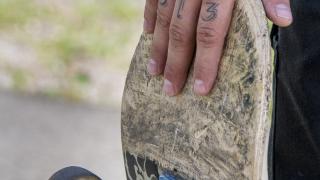Vantaa to pilot a new approach aiming to prevent juvenile delinquency
Social fieldwork supports the young who are at risk of ending up in a circle of crime. Creating hope for the young lies at the core of the work. This new approach is being developed for Vantaa’s needs.

Vantaa is developing a new operating model for preventing juvenile delinquency. The aim of social fieldwork is to identify and support the young that already have a criminal background and that are not included in other available services.
The work is carried out by a novel multiprofessional team that has experience in, among other things, youth and substance-abuse work, outreach fieldwork, as well as criminal sanctions matters.
Concern about increased juvenile delinquency in the background
Violent crimes committed by minors have risen all over the country, but the metropolitan area municipalities are especially highlighted in the statistics.
“It is good to remember that the majority of the young never commit any crimes. According to studies, a small group of young people, however, commit more crimes than before, which in part explains the increased number of crimes committed,” reminds Suvi Helle, supervisor of social fieldwork.
Many kinds of challenges and a lack of vision often lie in the background of crimes committed by the young. The reasons for becoming marginalized and drifting into the circle of crime may consist of, among others, cross-generational deprivation, mental-health problems, neuropsychiatric challenges, discrimination, and loneliness.
Many young people who have committed crimes have been entirely left outside the service system. Social fieldwork is seeking solutions to reach exactly these young people and help them.
Building hope and trust is key
Encountering the young on public premises, in schools, as well as face-to-face lies at the core of social fieldwork. The employees go to the places where the young hang out, but cooperation with the city's different actors, authorities, and organizations is as important.
In social fieldwork, contact with the young is tight, and the employees help them solve practical issues. The aim is to help the young person move in the right direction by building trust and hope for the future.
“Individual work entails gradually learning, together with the young, emotional skills, societal norms, and ways to cope with various situations without criminal acts,” Helle adds.
The City of Vantaa's Youth and Community Services began to develop social fieldwork last May, and the aim is to pilot the model until 2027.




